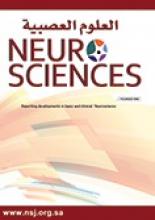DECEMBER 2, 2020 - Convergence insufficiency is a common vision disorder in which a person’s eyes tend to drift outwards when they try to use their eyes together up close. This can cause eye strain, headaches, blurred and double vision. When reading, people with convergence insufficiency frequently lose their place or have to re-read text.
There are two main types of treatment for convergence insufficiency: 1) prism-lensed reading glasses, designed to improve visual comfort, and 2) eye (vision) therapy designed to restore normal visual function and improve visual comfort.
Different types of vision therapy are prescribed for the treatment of convergence insufficiency that aim to improve the affected person’s convergence ability (the ability of eyes to turn inwards). Treatment can be self-administered at home using only a pencil (pencil push-ups) or a computer software program (home-based computer therapy). Alternatively, it can consist of a sequence of activities individually prescribed and monitored by the doctor, administered by trained therapists in an office setting along with practice at home (office-based therapy with home reinforcement).
We reviewed the evidence from research studies to compare the effectiveness of these different treatments (prism reading glasses, office-based therapy with home reinforcement, and home-based treatments), and also to determine whether the treatments are associated with adverse (unwanted) effects.
How did we identify and evaluate the evidence?
First, we searched the medical literature for randomized controlled studies (clinical studies where people are randomly put into one of two or more treatment groups). This type of study provides the strongest evidence about the effects of a treatment. We compared the results and summarized the evidence from all the studies. Finally, we assessed how certain the evidence was by considering factors such as the way studies were conducted, the number of people in the studies, and the consistency of findings across studies. Based on our assessments, we categorized the evidence as being of very low-, low-, moderate-, or high-certainty.
What did we find?
We found 12 studies with a total of 1289 people with convergence insufficiency. Six studies were conducted in children aged seven to 18 years, five studies in young adults aged 15 to 40 years, and one study in adults aged 40 years and older. Studies lasted for between six weeks and six months.
Results in children
For improving convergence ability, high-certainty evidence showed that office-based therapy with home reinforcement is better than placebo, home-based computer therapy, and home-based pencil push-ups.
For improving convergence ability, as well as symptoms reported by children (such as headaches or frequent loss of place when reading), low- to moderate-certainty evidence suggested that office-based therapy with home reinforcement is better than placebo, home-based computer therapy, and home-based pencil push-ups.
It is not clear (low- to moderate-certainty evidence) whether there is a difference for improving convergence alone, or convergence and symptoms as reported by children, between home-based computer therapy and home-based pencil push-ups, or between these two home-based treatments and placebo.
One study compared prism reading glasses against placebo reading glasses, and found no evidence of a difference in improvement in convergence or symptoms.
Results in adults
Evidence from three studies indicated that office-based therapy could be more effective than placebo for improving convergence when it was measured one way (‘positive fusional vergence’), but not when measured another way (‘near point convergence’). There was no difference between treatments for changes in symptoms reported by adults.
One study compared glasses with prism lenses against placebo glasses, and found that adults with prism glasses reported fewer symptoms. However, there was no evidence of a difference for improvement in convergence.
Are there any adverse effects from treatment?
No study, in children or adults, reported any adverse effects related to study treatments.
What does this mean?
High-certainty evidence indicates that, office-based therapy with home reinforcement is more effective than home-based pencil push-ups, home-based computer therapy, and placebo for treating convergence insufficiency in children. For adults, the comparative effects of these interventions are less clear.
How-up-to date is this review?
The evidence in this Cochrane Review is current to September 2019.
Full Citation: “Interventions for convergence insufficiency: a network meta-analysis”. Mitchell Scheiman, Marjean T. Kulp, Susan A. Cotter, John G. Lawrenson, Lin Wang, Tianjing Li. Published Online: December 02, 2020. (DOI: 10.1002/14651858.CD006768.pu)
Copyright © 2020 The Cochrane Collaboration. Published by John Wiley & Sons, Ltd., reproduced with permission.
- Copyright: © Neurosciences
Neurosciences is an Open Access journal and articles published are distributed under the terms of the Creative Commons Attribution-NonCommercial License (CC BY-NC). Readers may copy, distribute, and display the work for non-commercial purposes with the proper citation of the original work.






